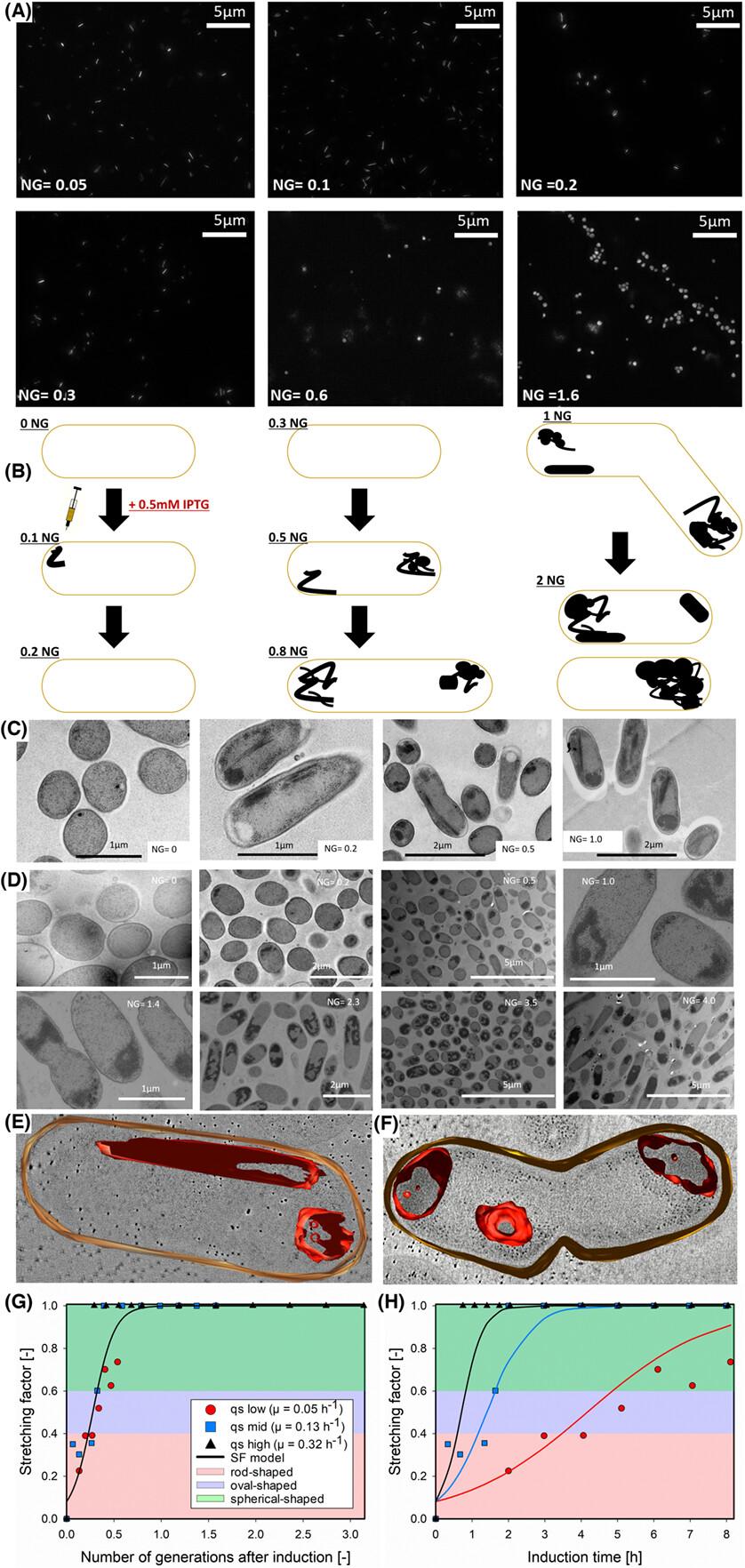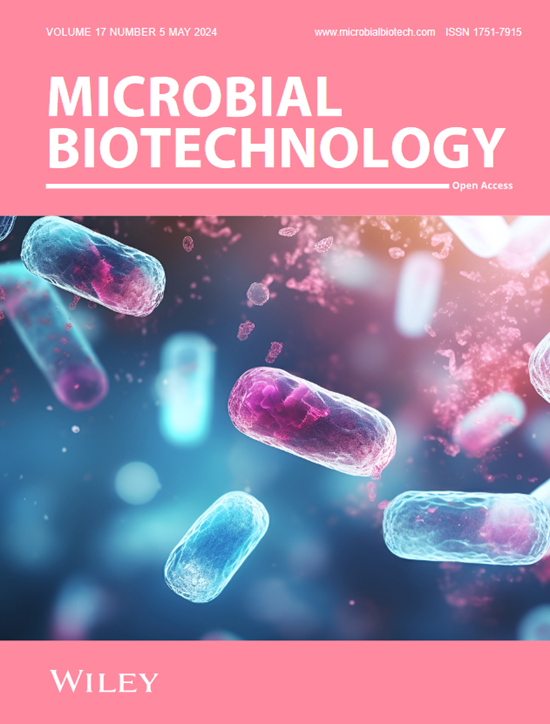早期包涵体形成的基本见解
IF 5.2
2区 生物学
Q1 BIOTECHNOLOGY & APPLIED MICROBIOLOGY
引用次数: 2
摘要
早期包涵体的形成仍然是个谜。关于棒状蛋白质聚集体的存在,一种潜在的海绵状包涵体支架以及每个大肠杆菌细胞包涵体的数量,文献是模棱两可的。在这项研究中,我们证实了杆状包涵体的存在,证实了它们的多孔形态,每个细胞中存在多个蛋白质聚集体,并模拟了包涵体形成与代数的关系。本文章由计算机程序翻译,如有差异,请以英文原文为准。

Fundamental insights in early-stage inclusion body formation
Early-stage inclusion body formation is still mysterious. Literature is ambiguous about the existence of rod-shaped protein aggregates, a potential sponge-like inclusion body scaffold as well as the number of inclusion bodies per Escherichia coli cell. In this study, we verified the existence of rod-shaped inclusion bodies, confirmed their porous morphology, the presence of multiple protein aggregates per cell and modelled inclusion body formation as function of the number of generations.
求助全文
通过发布文献求助,成功后即可免费获取论文全文。
去求助
来源期刊

Microbial Biotechnology
BIOTECHNOLOGY & APPLIED MICROBIOLOGY-MICROBIOLOGY
CiteScore
9.80
自引率
3.50%
发文量
162
审稿时长
6-12 weeks
期刊介绍:
Microbial Biotechnology publishes papers of original research reporting significant advances in any aspect of microbial applications, including, but not limited to biotechnologies related to: Green chemistry; Primary metabolites; Food, beverages and supplements; Secondary metabolites and natural products; Pharmaceuticals; Diagnostics; Agriculture; Bioenergy; Biomining, including oil recovery and processing; Bioremediation; Biopolymers, biomaterials; Bionanotechnology; Biosurfactants and bioemulsifiers; Compatible solutes and bioprotectants; Biosensors, monitoring systems, quantitative microbial risk assessment; Technology development; Protein engineering; Functional genomics; Metabolic engineering; Metabolic design; Systems analysis, modelling; Process engineering; Biologically-based analytical methods; Microbially-based strategies in public health; Microbially-based strategies to influence global processes
 求助内容:
求助内容: 应助结果提醒方式:
应助结果提醒方式:


